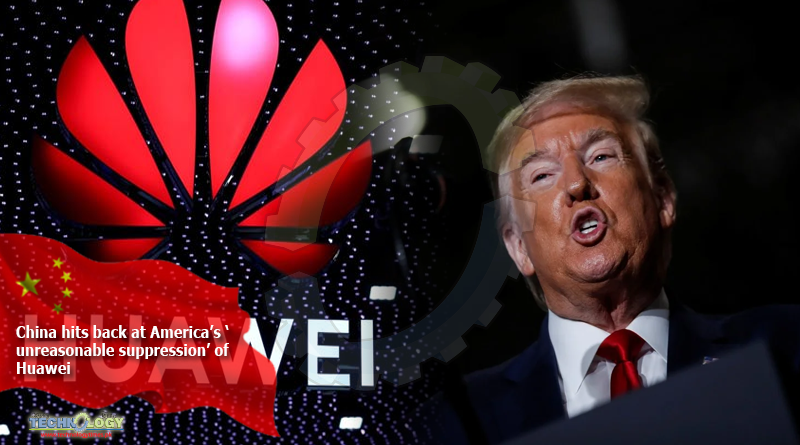Beijing has appealed to Washington to bring an end to the suppression of Chinese firms after the US announced plans on Friday to further restrict technology giant Huawei ability to develop semiconductors using American technologies.

Describing the move as the destruction of “global manufacturing, supply and value chains”, the Chinese foreign ministry said on Saturday that Beijing would “firmly uphold Chinese firms’ legitimate and legal rights and interests”.
“We urge the US side to immediately stop its unreasonable suppression of Huawei and Chinese enterprises.”
The US commerce department said on Friday that the new restrictions would “narrowly and strategically” target Huawei’s acquisition of semiconductors manufactured overseas but using American software and technology so as to prevent it bypassing US export controls.
The restrictions will cut off Huawei’s access to one of its major suppliers, Taiwanese chip maker TSMC. Photo: EPA-EFE
US officials have repeatedly accused Huawei of stealing American trade secrets and aiding China’s espionage efforts, ramping up tensions as the two sides continue to fight a trade war.
As a result, the company has increasingly relied on domestically manufactured technologies, but the latest rules will also ban foreign firms that use US technology from shipping semiconductors to Huawei without US permission.
The new restrictions will cut off Huawei’s access to one of its major suppliers, Taiwanese chip maker TSMC, which also manufactures chips for Apple and other tech firms.
Chinese state-run tabloid Global Times said Beijing was ready to target Apple, Qualcomm, Cisco and Boeing in retaliation for the restrictions on Huawei, citing a source close to the government.
The countermeasures could include adding the companies to China’s “unreliable entity list”, launching investigations into them and suspending aircraft purchases from Boeing, it said.
Huawei boss says company has no plans to cut ties with US suppliers26 Apr 2020
However, Shi Yinhong, a professor of international relations at Renmin University and adviser to China’s State Council, said that given the US had only just announced the restrictions and that any countermeasures would have to be approved by Chinese President Xi Jinping, it was very unlikely that Beijing had already decided how to respond.
“I personally think that China should retaliate, but not in a tit-for-tat way against US companies in China,” he said.
“Even if China puts them on its entity list, the psychological impact on US companies would be huge, especially at this critical moment when China is trying hard to attract foreign investment, especially from the US.”
As the Covid-19 pandemic has disrupted global supply chains, so the US, Japan and the European Union have sought to lure companies away from China in a bid to reduce their dependency on the world’s second-largest economy.
Victor Gao, vice-president of the Centre for China and Globalisation, a Beijing-based think tank, said there were many ways in which China could retaliate for the new restrictions on Huawei, including selling its US treasury bonds or halting any future purchases, and tightening its controls on Apple products.
“For example, if Beijing declared that all Apple products made in China had to be inspected, which would delay their shipment, in three months, Apple would be dead,” he said.
Originally Publish at: https://www.scmp.com/
